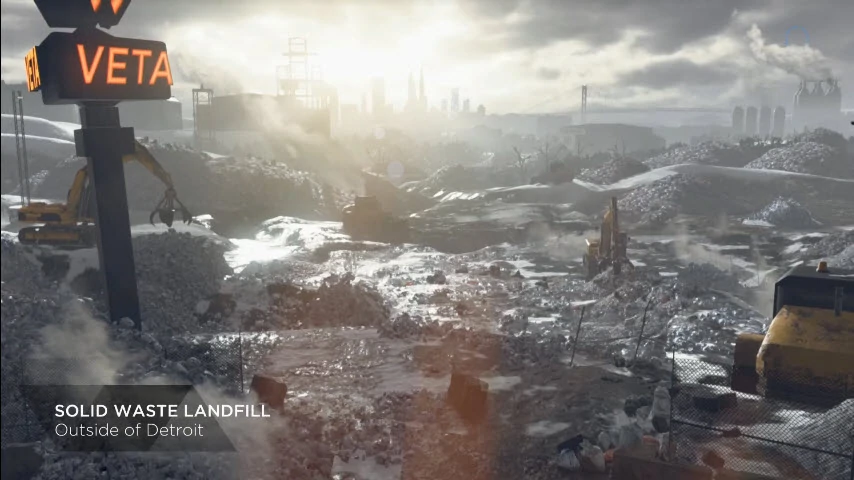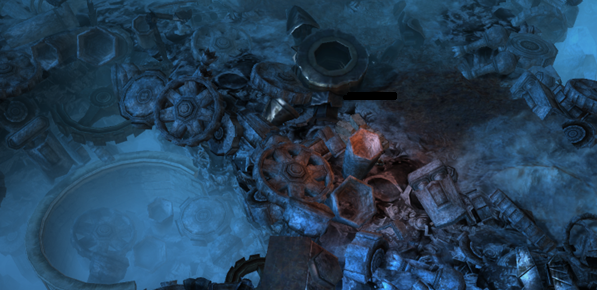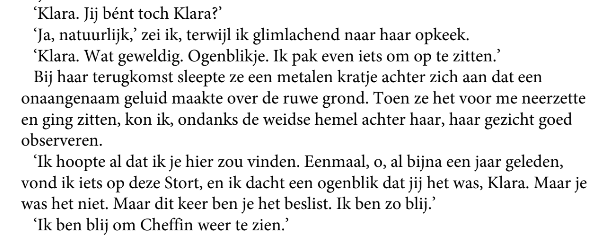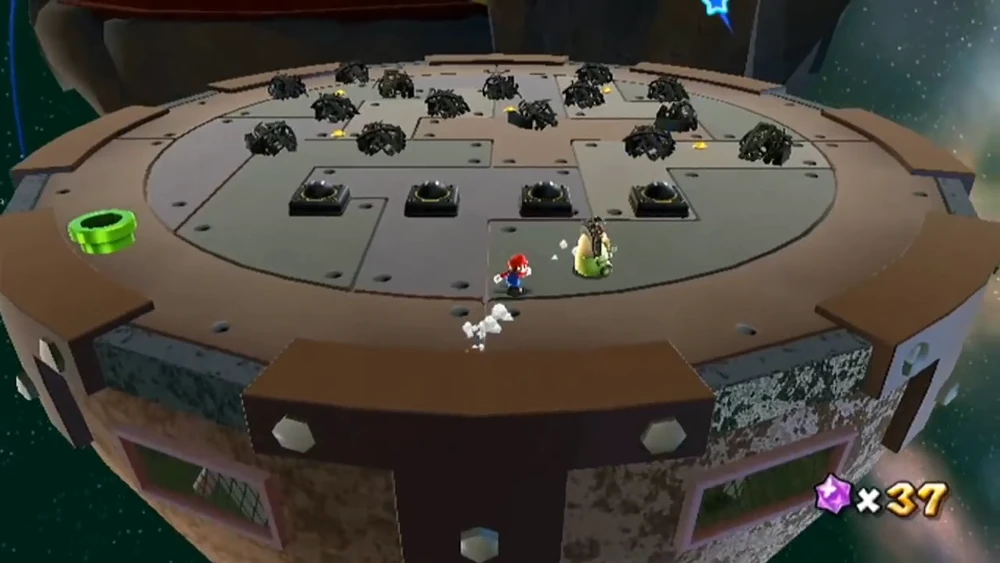With modern times come modern tropes in media. The explosion of development in the area of digital technology has spawned many new themes for artists to make use of: space travel, robots, cyborgs, never-seen-before forms of transportation and much more. While we love a good futuristic story, people are still wary, as can be seen in the cyberpunk theme that keeps on returning whenever a book, film or game portrays a highly technological fictional world. In this post, I want to discuss one such recurring trope from the high tech entertainment genre: the Junkyard Scene™. (Funnily enough, the actual game Cyberpunk 2077 doesn’t have this, as far as I know)

What’s the junkyard trope?
The worldbuilding in most of these stories are often caricatures of our own world. There’s the crisp, clean, pristine part where people enjoy technology in a way that is fully integrated in their lives, making everything easier and more efficient. It’s peaceful, and any disruption that is present gets shut down immediately. Via one way or another, the main character will end up at the junk heap on the outskirts of town. Of course, you will see remnants of the useful tools and gadgets you saw earlier, with some of the screens flickering weakly and pathetically to indicate the end of its lifespan. It usually looks similar to the image above: grey, dirty, dangerous and generally unpleasant. The contrast to the safe and shiny place where you were 200 pages, 5 worlds or one season ago shocks the viewer, regardless of how many times they’ve seen it. And then you’ll see it: someone or something is alive! Sometimes they’re enemies, sometimes they’re allies, and sometimes they have something you need. Regardless of how the plot plays out from here, one thing is clear: the main character(s) will have to take action, or die trying.

In all of the examples given in this post, the main character(s) end up heroic in some way. Markus from Detroit: Become Human has to make ethically loaded decisions (such as killing another android) to restore his own android body, in order to make it to Jericho and start a revolution. Your character in Drakensang has to help the men at the frontline in the war against the evil groups who stole their technology and are using it against them. There are many more examples, and I won’t be surprised if most of them follow this general pattern.
Why is the junkyard trope?
Why does this scene keep appearing in so many media? One approach is to see it as a reminder of the importance of bravery and humanity. There is trash, disaster and danger all around the character and everything has a story, but they need to focus on what’s important. The junk heap playing a part in the plot in many of these media also shows that the (rapid and intensive) improvement of one area will frequently result in the dilapitation of other areas, which many will be affected by.

It even occurs in less serious media: Super Mario Galaxy 1 and 2, every high tech location has junk lying and floating around, and there are multiple missions where the player needs to destroy trash that is dumped in areas not meant for it, and it is strongly implied that these are debris from space technology. The player is then rewarded for helping to clear it out, once again taking on the role of saviour.


Now, this scene doesn’t have to appear in every high tech or futuristic piece of media, but I believe it’s rather common, and usually not mentioned very often. It shows that humans still have certain ways of thinking about technology, and that doubt and worry seems like it’s here to stay. With AI reinforcing people’s opinions of the rapidly changing interaction between technology and society, we will likely see more of this kind of trope in new media. But maybe we’ll soon see different things on that trash heap, since cyborg and android life seems to be getting closer!
Do you know any more examples of this trope? Do you think this implied attitude towards technology will change? Even better, do you think it’s really this deep, or is it just literal Trash ™? Let me know 🙂
EDIT: adding Stray from the comments, and Ghost Trick after it being mentioned in class! Both fit very well into this theory, and are cool to check out if you want more!
Saucy sources
First image: https://detroit-become-human.fandom.com/wiki/Solid_Waste_Landfill?file=Solid_Waste_Landfill-Detroit_Become_Human.jpg
Second image: my own screenshot
Third image: Klara and the Sun by Kazuo Ishiguro, pg. 234
Fourth image: https://mario.fandom.com/wiki/Battlerock_Galaxy/Gallery?file=SMG_Battlerock%2527s_Garbage_Dump.png


Hi!! Your blogpost is very interesting, because I never really realized that such a trope occurs as much as it does! Your idea about how people still view tech a certain way by adding a junkyard goes beyond just technology staying, I think. It might even show that even the expensive tech we can only imagine in fantasies of the future become common place and easily replacable, especially if the tech can be considered sentient in the case of Detroit Become Human.
Another example of the junkyard might be some of the areas in the game Stray! Even though I don’t remember an actual junkyard, there are some abandoned areas with some trash laying around. Plus, the setting is dystopian.
Anyways, your blogpost was very good! It definitely got me to consider the trope differently than just an area in a video game with a bunch of trash haha
Thank you for your comment! I’m glad someone else is able to see more than just trash as well lol. I also totally forgot about Stray, nice one! Appreciate the addition 🙂
Thank you for the post! I’m not really a gamer myself but I did play Super Mario and now I realize the usefulness of a junkyard in games. This example made me think of manga and manhwa, where a popular trope is being hit by a truck and getting transported to a futuristic or historical world. The main character has to survive and becomes the hero or the villain (also a trope).
I think this has the same use as in the game although less user-interactive. Tropes are useful in a lot of different media and it’s pretty entertaining to make a little fun with/of the tropes.